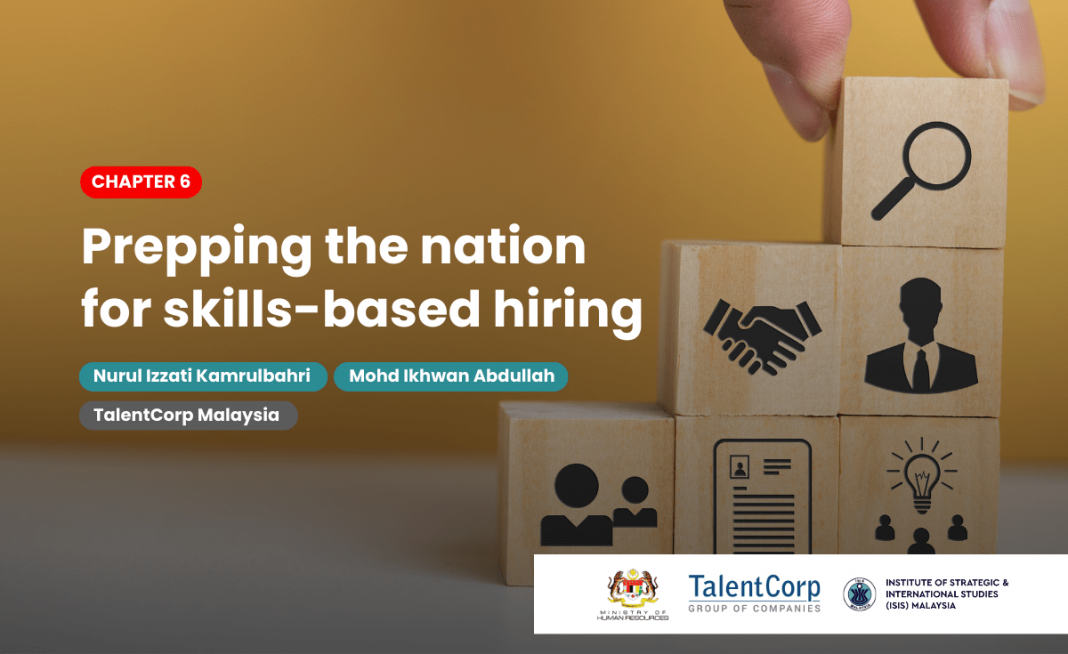One of the biggest changes wrought on the world of work has been the transition to hybrid and flexible work. In this chapter, Nurul Izzati Kamarulbahri and Mohd Ikhwan Abdullah of TalentCorp Malaysia suggest that where educational degrees used to be a proxy to guarantee employment, there has since been a shift towards skills-based hiring – what many deem a “structural reset” accelerated by the pandemic. The chapter provides a brief look into the skills employers now seek amid shifts in technological currents. The result is a demand for more hybrid competencies, such as a balance between higher cognitive and socioemotional skills with technical skills. In the context of Malaysia, however, these hiring trends are a double-edged sword. While it could equalise the playing field for the country’s “lost generation” – young people badly affected by education gaps during the pandemic – it risks confining qualified graduates into underemployment or informal work. Future policies will need to set conditions for better skills-based hiring through education, training and development programmes, stronger commitments to lifelong learning, and rethinking remuneration levels for employees.
By Nurul Izzati Kamrulbahri & Mohd Ikhwan Abdullah of TalentCorp Malaysia





